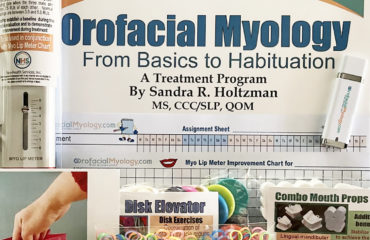RDH how to become an insurance provider
Hi Sandra, I would love to get more information on the question of insurance and fees. And how do I get on insurance as a provider? Thanks again for your time.
When we first opened our therapy center, it took us months and months of work to become providers for several insurance companies. We kept asking what was required, sent them the info, followed up, and continued sending whatever they wanted. Keep in mind that SLPs are covered by many insurance companies, but not necessarily for orofacial myology treatment. While an SLP can put the client under various other areas that are covered, the RDH is at a disadvantage here. If the RDH is working with a DDS, there is a chance for dental insurance coverage. If working with an SLP, again there is a chance for coverage. But until now, there is no code or insurance coverage specific to orofacial myology that an RDH can turn to. That’s why I mentioned in class that you have to go private pay or have someone as a supervisor to sign off on insurance. If you can find someone to do that, I believe they would want to be certain that you have completed the entire QOM, Qualification in Orofacial Myology process and that you would be able to meet with them at various times throughout the process to discuss the patient’s treatment plan. If you’re going it alone, I suggest you go for private pay at first and charge a reasonable fee. At the same time, it would be wise to continue seeking providership with every insurance company you can. Unfortunately, neither I nor anyone else has the answers to how to get covered in any particular instance. Right now, for example, I have one insurance company that covered siblings fully for many months. The same insurance company then refused payment for another child with the exact insurance. In fact, BOTH fathers work for the same organization and have exactly the same policy. We’re appealing now, saying that they covered us previously for the identical codes, etc. Remember my suggestion during the course that you should approach not only orthodontists, but also pediatricians and other professionals regarding the advantage of eliminating sucking habits (Unplugging The Thumb). Once you have seen the child and eliminated the sucking habit, the parent will be confident in you and your ability to continue the orofacial myology treatment portion of the program, which most of the clients will need at that point or in the near future. I wish I had better news, but at this point in time, orofacial myology is not yet recognized in and of itself as a specialty area, but rather as an arm of speech pathology and dentistry. With your knowledge and entrepreneur attitude, I see no reason why you won’t be highly successful in your endeavor…it just takes a lot of time and persistence. Keep in touch and keep moving forward and trying whatever you have to and for long enough periods of time to see which avenues are most fruitful. My best, Sandra

